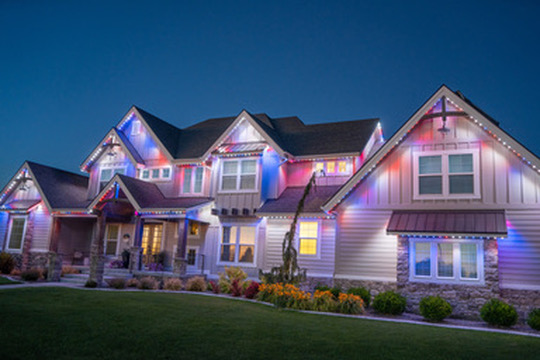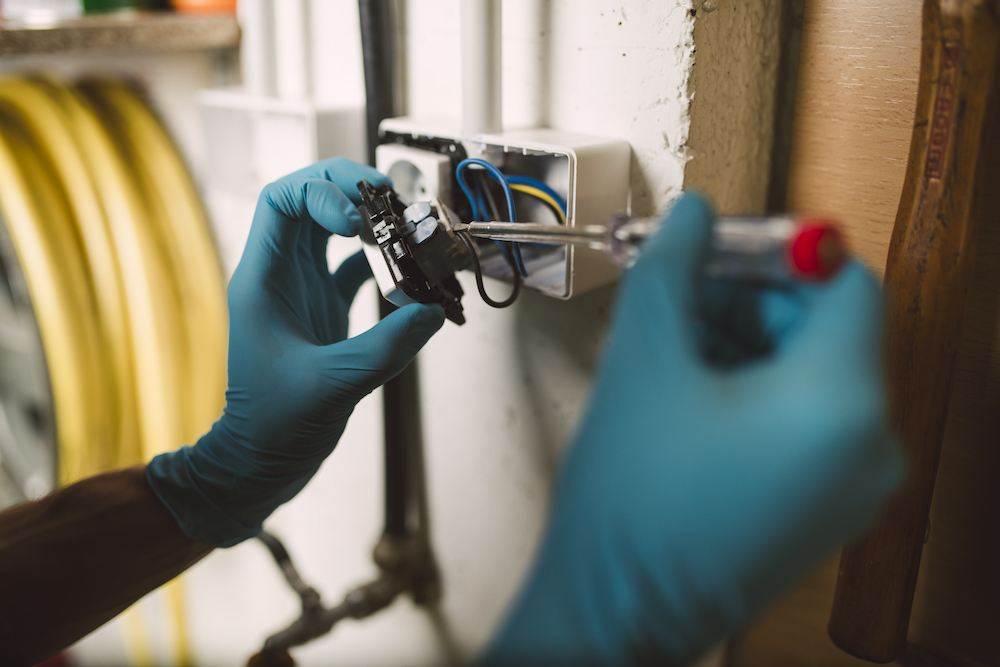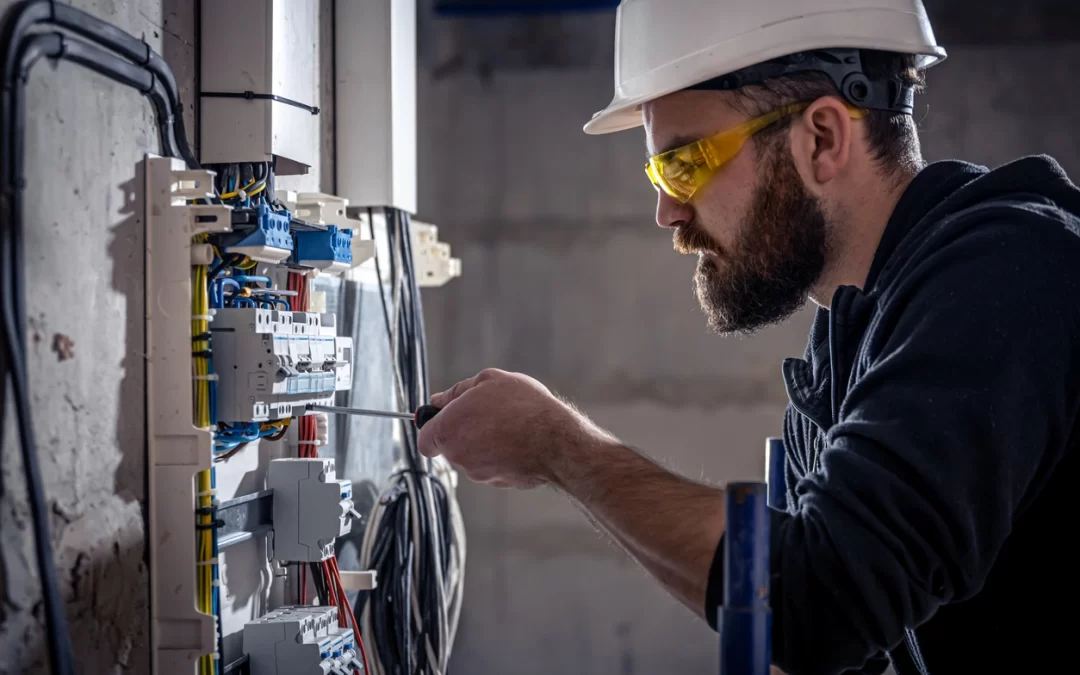As a homeowner, one of the most important aspects of your property is its electrical system. In older homes, the electrical wiring may not be up to current standards, which can pose significant safety risks and hinder your ability to use modern appliances and technologies. In New Jersey, especially in older homes built before the 1980s, rewiring is often necessary to ensure safety and efficiency. In this post, we’ll explore why rewiring your older NJ home is essential and how it can benefit you in the long run.
The Importance of Rewiring Your Older Home
Over time, electrical systems degrade and become outdated. If your home is decades old and has never been rewired, it is likely operating on electrical infrastructure that was designed for much lower energy demands. This outdated wiring may not be able to support the modern appliances and technology we rely on today.
1. Improved Safety
The safety of your home should always be a top priority. Older wiring can lead to a variety of dangerous issues, including electrical fires, short circuits, and electrocution. Many homes built before the 1970s use knob-and-tube wiring or aluminum wiring, which are prone to overheating and are not safe by today’s standards. 
- Knob-and-tube wiring: This type of wiring, once standard in older homes, does not have a grounding wire, which makes it dangerous when connected to modern appliances.
- Aluminum wiring: Used in homes built between 1960 and 1970, aluminum wiring is more prone to overheating and can cause fires if connections loosen.
By rewiring your older home, you can replace outdated wiring with modern copper wiring that meets current safety codes and ensures the electrical system is properly grounded, reducing the risk of electrical fires and electrical shock.
2. Increased Energy Efficiency
Outdated wiring can be inefficient and lead to wasted energy. Older wiring systems may have damaged insulation, leading to energy loss or even overheating. Rewiring your home with energy-efficient wiring can help you save on electricity bills and increase your home’s overall energy efficiency.
Additionally, modern electrical systems are designed to support energy-efficient appliances and smart home technology. Whether you’re installing LED lighting, a smart thermostat, or energy-efficient appliances, rewiring your home ensures that your system can handle the demands of these modern devices.
3. Ability to Handle Modern Appliances
Our energy needs have changed drastically over the past few decades. Today’s households rely on numerous high-power appliances like refrigerators, dishwashers, washing machines, air conditioners, and home entertainment systems. These devices require more power than older electrical systems can provide.
Old wiring may not have the capacity to support these power-hungry devices. In fact, using too many high-powered appliances on an outdated system can overload circuits, leading to tripped breakers or, worse, electrical fires. Rewiring your home ensures your electrical system is capable of safely handling the increased load from modern appliances and devices.
4. Compliance with Current Electrical Codes
Electrical codes change over time to ensure that homes are safe and energy-efficient. If your home’s wiring does not meet current standards, it may fail an inspection or even cause problems when you attempt to sell your home. Rewiring ensures your electrical system complies with modern building codes and ensures that your home is up to code.
Additionally, rewiring your home can help you avoid issues with insurance claims. If an insurance company finds that your electrical system does not meet the required standards, it could deny coverage in case of an electrical fire or related incident.
5. Improved Resale Value
If you plan to sell your home in the future, rewiring can significantly increase its resale value. Homebuyers are more likely to be attracted to a property with a modern electrical system that meets current safety standards. Homes with outdated wiring may be flagged by inspectors, potentially resulting in lower offers or even a failed sale.
Investing in rewiring before selling your home can give you a competitive edge in the market and increase the home’s appeal to potential buyers.
Signs That Your Home Needs Rewiring
Rewiring is a significant investment, and it’s important to know when it’s time to update your home’s electrical system. Here are some signs that it might be time to consider rewiring your older NJ home:
- Frequent Circuit Breaker Tripping: If your circuit breaker trips frequently, it could be a sign that your system is overloaded or that there is a wiring issue.
- Dimming or Flickering Lights: If your lights dim or flicker when you use certain appliances, it’s an indication that your electrical system may not be capable of handling the load.
- Warm or Discolored Outlets and Switches: If you notice that your outlets or switches feel warm to the touch or are discolored, this could indicate that the wiring is overheated or damaged.
- Visible Signs of Wear: Exposed wires, cracks in the insulation, or other visible signs of wear are a clear indication that rewiring is needed.
- Old Wiring Types: If your home is still using outdated wiring like knob-and-tube or aluminum wiring, it’s time to upgrade to a safer, more reliable system.
The Rewiring Process: What to Expect
Rewiring a home can be a complex and time-consuming task, but with the right professionals, the process can go smoothly. Here’s an overview of what to expect during a rewiring project:
- Initial Inspection and Assessment: An electrician will begin by inspecting your current electrical system and identifying areas that need to be rewired. They will also assess whether your home’s electrical panel needs to be upgraded to handle more power.
- Planning and Permits: Rewiring a home typically requires permits from local authorities. The electrician will help you navigate this process and create a detailed plan for the rewiring project.
- Removal of Old Wiring: The electrician will carefully remove the old wiring and any outdated components. This step may involve cutting holes in the walls or ceilings to access the wiring.
- Installation of New Wiring: New wiring is installed according to the electrical plan, ensuring it meets current safety standards and can handle the load of modern appliances.
- Testing and Inspection: Once the rewiring is complete, the system will be tested to ensure that it works correctly and safely. The electrician will perform a thorough inspection before completing the job.
Why Choose Del Val Electric for Your Rewiring Needs?

Detail of a man working on an electrical installation
At Del Val Electric, we understand the importance of having a safe and reliable electrical system in your home. Our experienced team of electricians specializes in rewiring older homes in New Jersey, and we pride ourselves on providing high-quality, reliable services. Whether you’re looking to update your electrical system for safety reasons, increase your home’s energy efficiency, or prepare for modern appliances, we’re here to help.
We are committed to offering affordable, efficient rewiring solutions that meet the highest safety standards. Our team will guide you through the entire process, ensuring your home is rewired safely and professionally.
Contact Us Today for Your Rewiring Needs
If you’re ready to upgrade your older NJ home with modern electrical wiring, don’t hesitate to contact Del Val Electric. Our team of experts will provide a detailed assessment of your home’s electrical system and recommend the best solutions for your needs.
Call us at: 609-920-8430
Email us at: delvalelectric83@gmail.com
Visit our website: delvalelectric.com
Business Hours: Monday to Friday, 8 AM – 5 PM
Let us help you make your home safer and more efficient with our rewiring services.

